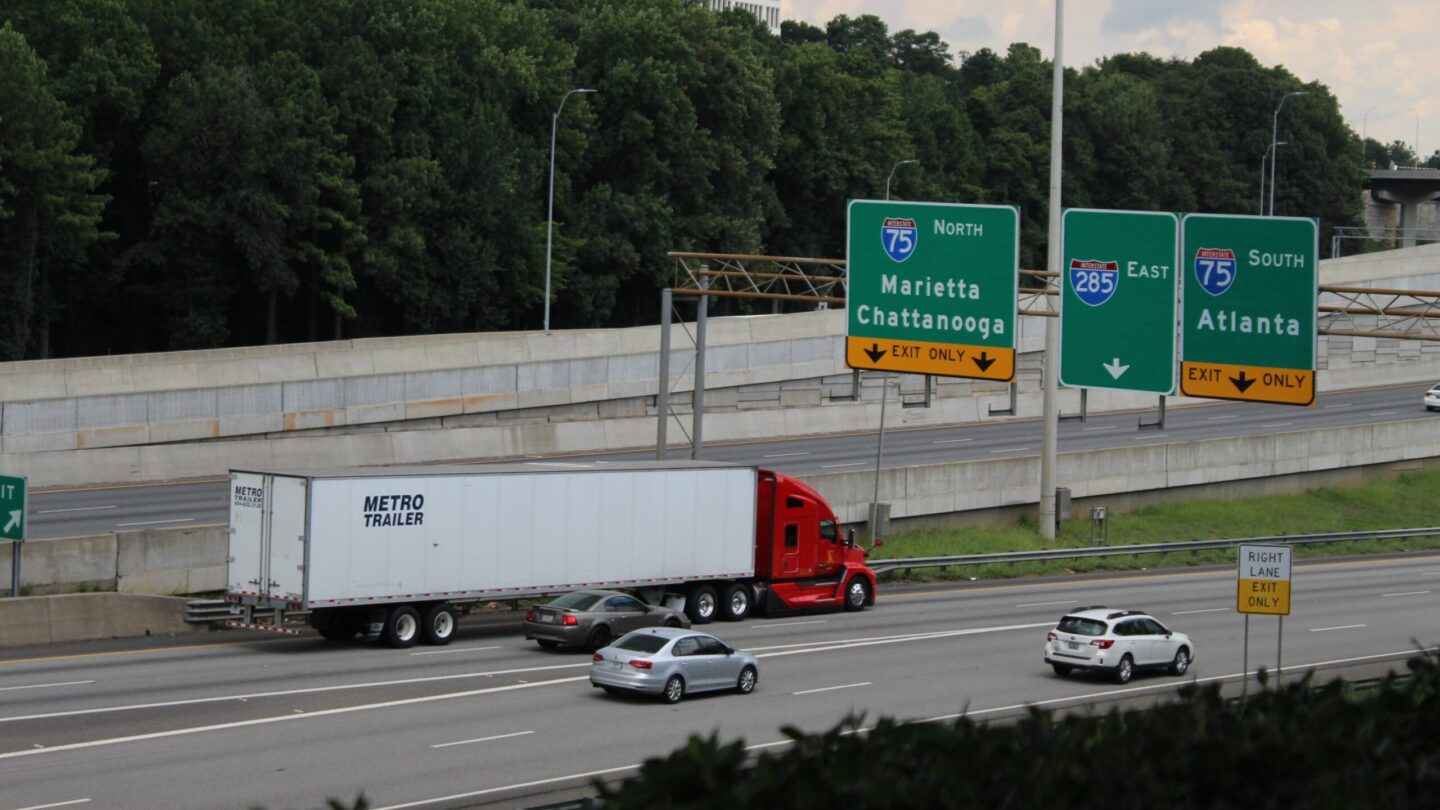Georgia lawmakers reached a last-minute deal early Thursday to increase the weight limit for some trucks traveling state highways.
The legislature gave final passage to House Bill 189, which would allow a weight limit of 88,000 pounds (40,000 kilograms) for trucks hauling agricultural and forest commodities. The current limit on state roads is 80,000 pounds, but trucks are allowed a variance of up to 84,000 pounds.
If Gov. Brian Kemp signs the measure into law, the greater weight would be allowed only on local roads and state highways, not interstates. The heavier trucks could only travel within a 150-mile radius of their point of origin and wouldn’t be allowed in 13 core metro Atlanta counties.
House and Senate negotiators reached a compromise on the final day of the 2023 legislative session and the Senate cast the final vote at several minutes past midnight. A key part of the deal was that the higher weight limits would expire on July 1, 2025.
And while truck weights in Georgia are now enforced only by the state Motor Carrier Compliance Division, lawmakers agreed to allow local police and sheriff’s departments to write tickets for overweight trucks stopped on local roadways.
The debate over truck weights pit logging, farming and trucking groups against city and county governments and the state Department of Transportation, which fiercely opposed boosting truck weights.
Groups seeking the increase said they could save money by hauling more freight per trip. Loggers argued the change could make the difference between profit and loss in their low-margin industry.
But opponents warned that heavier trucks will cause more damage to roads and bridges, requiring expensive repairs, and possibly cause more crashes because of increased stopping distance.
Trucks would remain limited to 80,000 pounds on interstate highways.
The Senate insisted on an expiration date for the increase, saying Georgia needs to increase funding for its transportation system. Lawmakers have been pushing for a statewide freight and logistics plan, but it would cost another $1 billion a year, at least, to pay for projects including wider highways, improved interchanges and expanded railroads.
Kemp had been allowing heavy trucks that get special permits to haul up to 95,000 pounds (43,000 kilograms), under a supply chain emergency order that he repeatedly renewed. But that order finally expired on March 11, reducing the limit to 84,000 pounds.









